Class of 2019‑2020
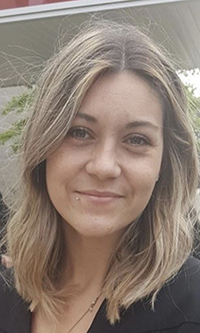 Noémie Blais
Noémie Blais
Noémie recently completed her BSc (Honours) in Biology at Carleton University, Ottawa. At a young age, Noémie’s curiosity and love of the ocean came from watching BBC documentaries narrated by Sir Attenborough. Living inland, away from ocean waters, she sought opportunities that would bring her closer to the ocean. In her third year, she embarked on a two-week scuba-diving course at the Cape Eleuthera Institute, Bahamas, where she completed field work on coral patch reefs. Her strong interest in the ocean soon amplified, leading her to discover the MMM program.
Noémie is eager to join the interdisciplinary MMM program. She is interested in marine protected areas, specifically, the conservation and management of sea turtle populations, and coral reef systems. Noémie is looking forward to gaining a better understanding of integrated coastal zone management, and marine law and policy during her time at HÂþ».
Rebecca Croke

Rebecca grew up in the small town of Acton, Ontario. During a high school trip to Honduras, she developed a profound passion for marine conservation. Rebecca went on to complete her Bachelor of ScienceÌýHonours in Biology atÌý the University of Prince Edward Island. She had the opportunity to conduct her honours research in the Coral Triangle of Indonesia, focussing on the effects of climate change on coral reef ecosystems.
Pursuing an undergraduate education on an island provided ample opportunity to visit and study the ocean. Rebecca was fortunate to explore many marine ecosystems. On Prince Edward Island, she assisted projects to monitor the invasive species, the European green crab, and a large-scale American eel aquaculture project. Ìý
Rebecca is excited by the interdisciplinary nature of the MMM program, where she can build on her interst in marine conservation using scientific research, and combining it with the multi-faceted tools she will gain from the MMM program. Her goal is to pursue a career that protects marine life.
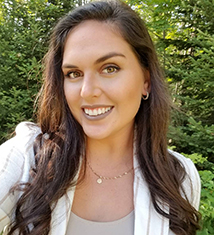 Jessica Cucinelli
Jessica Cucinelli
Jessica grew up in Ottawa but moved to Nova Scotia to follow her desire to live near the ocean. She completed a BSc in Marine Biology and certificate in Environmental Impact Assessment at HÂþ» University. During her studies, she had the to opportunity to travel to Belize, Honduras, Bermuda and Israel to study coral reef ecology where she saw first-hand the effects of climate change and anthropogenic pollutants. It was then she decided to pursue a Master’s in Marine Management with hopes to make a difference through effective community outreach and policy reform. Her current interests lie in addressing the relationship between anthropogenic noise and the detrimental effects on marine life, particularly in the North Atlantic.
She is an avid traveler having had the opportunity to visit 22+ countries and appreciates learning about different cultures. Her aim is to explore as much of the ocean as possible. In her down, time Jessica takes advantage of having obtained her divemaster’s and regularly participates in ocean clean ups, as each little bit helps!
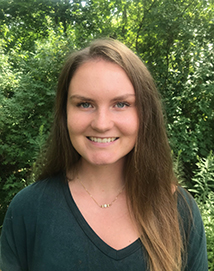 Kiana Endresz
Kiana Endresz
Kiana recently completed her degree at the University of Guelph and graduated with a BSc (Honours), majoring in Marine and Freshwater Biology. Her interest in the impacts of anthropogenic factors on natural systems led her to complete a certificate in Environmental Conservation alongside her degree. During her undergrad, Kiana had the opportunity to participate in a Marine Biology and Oceanography field course that took place in St. Andrews, NB. Her individual project examined the effects of temperature and salinity on the rate at which blue mussels are able to filter feed.
Kiana is particularly interested in how marine ecosystems are responding to the variety of pressures being brought on by human influences. Through the MMM program, she hopes to gain a greater understanding of management techniques and policies that can be applied to mitigate the effects.
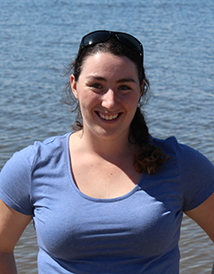 Delaney Ewing
Delaney Ewing
Delaney grew up near Toronto and has always loved marine science. She holds a Bachelor of Arts and Science from the University of Guelph, with concentrations in Biology and Public Policy. She strives to educate others on environmental awareness and sustainability. She recently obtained her PADI Open Water Diver certification in order to further her connection to the ocean.
During her undergraduate degree, Delaney took an arctic ecology field course to Churchill, Manitoba, where she was able to learn about the issues facing northern aquatic species. This, coupled with an upper-year research project focused on at-risk species, fostered her interest in the necessity of ecosystem preservation and developed a desire to pursue conservation work.
Delaney is interested in marine protected areas and their effectiveness. She hopes to focus on how they are developed and compare the differences in ecosystem health between protected and non-protected areas during her time at HÂþ».
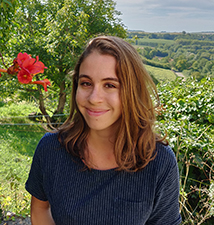 Camille Mancion
Camille Mancion
Camille was born in France and grew up in India. After high school, sheÌý volunteered in a research station in the Andaman and Nicobar Islands during her gap year. Her interest in marine science began when she assisted researchers on various ecology projects and discovered diving. In 2014, she moved to Canada to complete a Bachelor of Science in Agricultural and Environmental Sciences at McGill University. Fascinated by marine life, and diving, in 2016, she spent part of her summer in Bali Indonesia pursuing her PADI Divemaster certification.
In 2017, she joined Mingan Island Cetacean Study (MICS) as an intern and returned two years later as a team member and communications coordinator, participating in research on several cetacean species in the Gulf of St. Lawrence.
Through the interdisciplinary lens of the MMM program, she hopes to gain a better understanding of marine conservation issues. Camille is eager to develop her management skills to work with local communities on protecting marine biodiversity in developing countries.
 Stefan Miller
Stefan Miller
Stefan is a highly motivated individual that likes to think outside the box. Thriving in a multidisciplinary team environment, he can both lead and be led in order to achieve a common goal. Professionally, he has several years of bilingual sales and customer services in the private and public sector, which has allowed him to develop strong presentation skills. His academic background is a science degree with a major in geography complemented by several biology and ocean science courses. He has a passion for deciphering the workings of ecosystems and in order to try and recreate them in an artificial and controlled environment. This is reflected in his obsession of the aquarium hobby and his heavy interest in the modern aquaculture industry, particularly integrated multi-trophic aquaculture (IMTA) systems. This growing practice provides the byproducts, including waste, from one aquatic species as inputs of organic/inorganic waste to species in lower trophic levels.
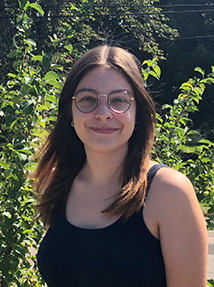 Jenna Morisette
Jenna Morisette
Jenna grew up in Labrador but later moved to the Maritimes to pursue her studies. In 2019 she graduated from Mount Allison University with a Bachelor of Science in honours Biology and major in Chemistry. Her research focused on the effects of environmentally relevant diel thermal cycles on the metabolic and swimming performance of wild juvenile Atlantic Salmon. Throughout her undergraduate degree she volunteered with the MtA - Atlantic Wildlife Institute and in her final year became the Vice-President of Financing for the club. After her undergraduate degree she spent her summer working for the Species at Risk Program at the Department of Fisheries and Oceans in the Gulf region. These academic, volunteer, and work experiences continue to develop Jenna’s passion for the environment and conservation. In the MMM program Jenna looks forward to gaining the necessary management skills to apply to a career focusing in conserving marine ecosystems.
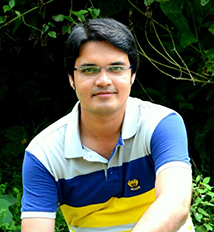 Shahriar Nazrul
Shahriar Nazrul
Shahriar is from Bangladesh and has lived in different coastal areas. In love of wildlife and nature, he studied Fisheries and Marine Science during graduation and Fisheries Biology and Genetics in post-graduation. Shahriar received different national and international fellowships in recognition of his merit. He has served seven years in different branches of the Department of Fisheries, Bangladesh as a Civil Service Officer. He also performed a scientific role in the ‘Marine Fisheries Resource Survey’ in Bay of Bengal Bangladesh (2016-2019) and published couple of scientific articles in recognized journals. He has participated different international meetings as the Head of Delegation of Bangladesh inÌý recent years.
Shahriar is thrilled to join the MMM program and eager to use its interdisciplinary approach to sharpen his knowledge to fight the emerging challenges of Bangladesh. He is especially interested on the restructure of small scale fisheries management of his home country in future.
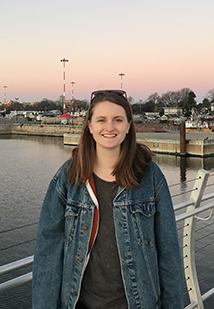 Rachel Rickaby
Rachel Rickaby
Rachel Rickaby grew up in Vancouver, British Columbia where she spent her childhood exploring west coast beaches, leading to her passion for marine conservation. She completed her BSc at the University of Victoria (UVic) in Marine Biology, furthering her interest in the ocean. During her time at UVic, Rachel worked as an educator at a local aquarium, and spent a summer on a boat monitoring whale and dolphin behaviour. She also had the opportunity to attend field school at the remote Bamfield Marine Sciences Centre where she examined invasive crabs and their impacts on a native mussel. This research sparked her interest in marine invaders and how they can effect and degrade ecosystems.
Rachel is excited to begin the MMM program at HÂþ» and experience interdisciplinary learning. She hopes to focus on the management and mitigation of invasive species in marine environments.
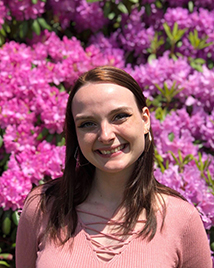 Morganne Robben
Morganne Robben
Morganne Robben was born and raised in Nova Scotia, instilling in her a passion for wildlife and nature from an early age. She graduated from Mount Allison University in 2018 with a Bachelor of Science, double majoring in biology and psychology. During her undergraduate degree, Morganne had the opportunity to study the biodiversity of patch reefs along the coast of the Caribbean Netherlands island of Bonaire. It was there that Morganne was able to experience and learn about a successful Marine Protected Area (MPA), especially in regards to the conservation of sea turtles. This experience was a highlight of her degree and truly solidified her passion for marine biology and conservation.
Morganne is looking forward to the interdisciplinary aspects of the MMM, and hopes to further her knowledge and understanding of MPAs while exploring ways to mitigate the effects of climate change on marine environments.
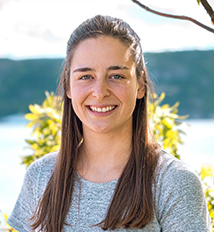 Noémie Roy
Noémie Roy
Ìý
Noémie is passionate about ocean conservation. She grew up in inland Quebec, far from the ocean, but was fascinated by its immensity. She always sought to learn more about the ocean, partly by surrounding herself by marine biologists through her jobs at the Mingan Island Cetacean Study, then at the Group for Research and Education on Marine Mammals. She completed a Bachelor of Science in Environmental Biology at McGill University. During her degree, she went on a student-exchange at the University of Otago, New Zealand where she studied marine ecology. This experience confirmed her desire to work in marine conservation. When she returned to McGill, she completed an Honours thesis on marine protected area management and biodiversity conservation. She chose the Master of Marine Management for its interdisciplinarity. Through her Master’s degree, she wants to learn more about how humans can cohabit with marine biodiversity through sustainable use of marine resources.
Ìý
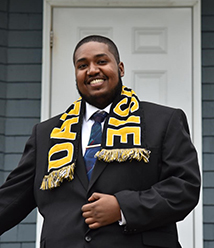 Omar Sickander
Omar Sickander
Omar grew up Ontario and spent many summers and some of his school years in St. Lucia, his mother’s native country. He recently completed his BSc Co-op, Major in Marine Biology and a Minor in Business with a Certificate in Aquaculture and the Environment at HÂþ» University. Omar was fortunate to have varied experiences in his co-op program. These included working on a beach in Costa Rica with TurtleTrax, working in the Croll lab with Dr. Roger Croll studying Zebrafish and various marine snails on olfaction. Most recently, he worked with the Aquaculture Association of Nova Scotia. It was through these varied experiences that his relationship with the ocean developed and fostered.
Omar is looking to explore various marine management problems through an interdisciplinary approach similar to his undergraduate degree.
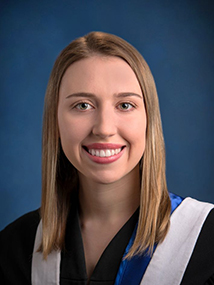 Catherine Thompson
Catherine Thompson
Catherine Thompson recently graduated from St. Francis Xavier University with a double major in Aquatic Resources and Public Policy and Social Research (PPSR). Moving to Nova Scotia from Southwestern Ontario gave Catherine the opportunity to live and learn by the ocean. While working for the Chéticamp River Salmon Association, she became passionate about the role of non-governmental organizations (NGOs) in resource management. Her undergraduate research focused on approaches to managing Atlantic Salmon from distant fisheries, namely, the West Greenland fishery. Catherine believes that an integrated resource management approach is integral to the conservation of vulnerable aquatic species. Catherine is eager to learn more about the socio-political dimensions of fisheries management through the MMM program. She was also drawn to the MMM program because of its interdisciplinary approach to solving complicated environmental issues.
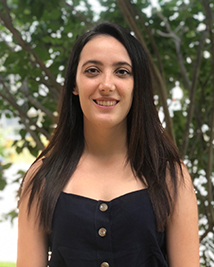 Shannon Wood
Shannon Wood
Shannon completed her BSc in Biology and Environment, Sustainability and Society at HÂþ» University. She mentored first year ocean science students and graduated with certificates in Leadership and Communication, sparking her interest in ocean education. Currently, Shannon channels her passion for education as a teaching assistant for HÂþ»â€™s College of Sustainability and the Faculty of Science. She is excited to continue her interdisciplinary studies and to further develop her leadership skills through the MMM program.
Throughout her undergraduate career, Shannon developed a strong passion for science literacy, Canadian coastal policy, and community outreach. She began studying coastal environments after working with the non-profit PLANifax where she helped create science media content to inform citizens about the importance of natural beach processes. This work inspired her to take courses that focused on coastal ecology and conservation strategies. Through the MMM program, Shannon is eager to use her passion for science education to better understand how stakeholders interact with coastal spaces.
Ìý
Ìý
